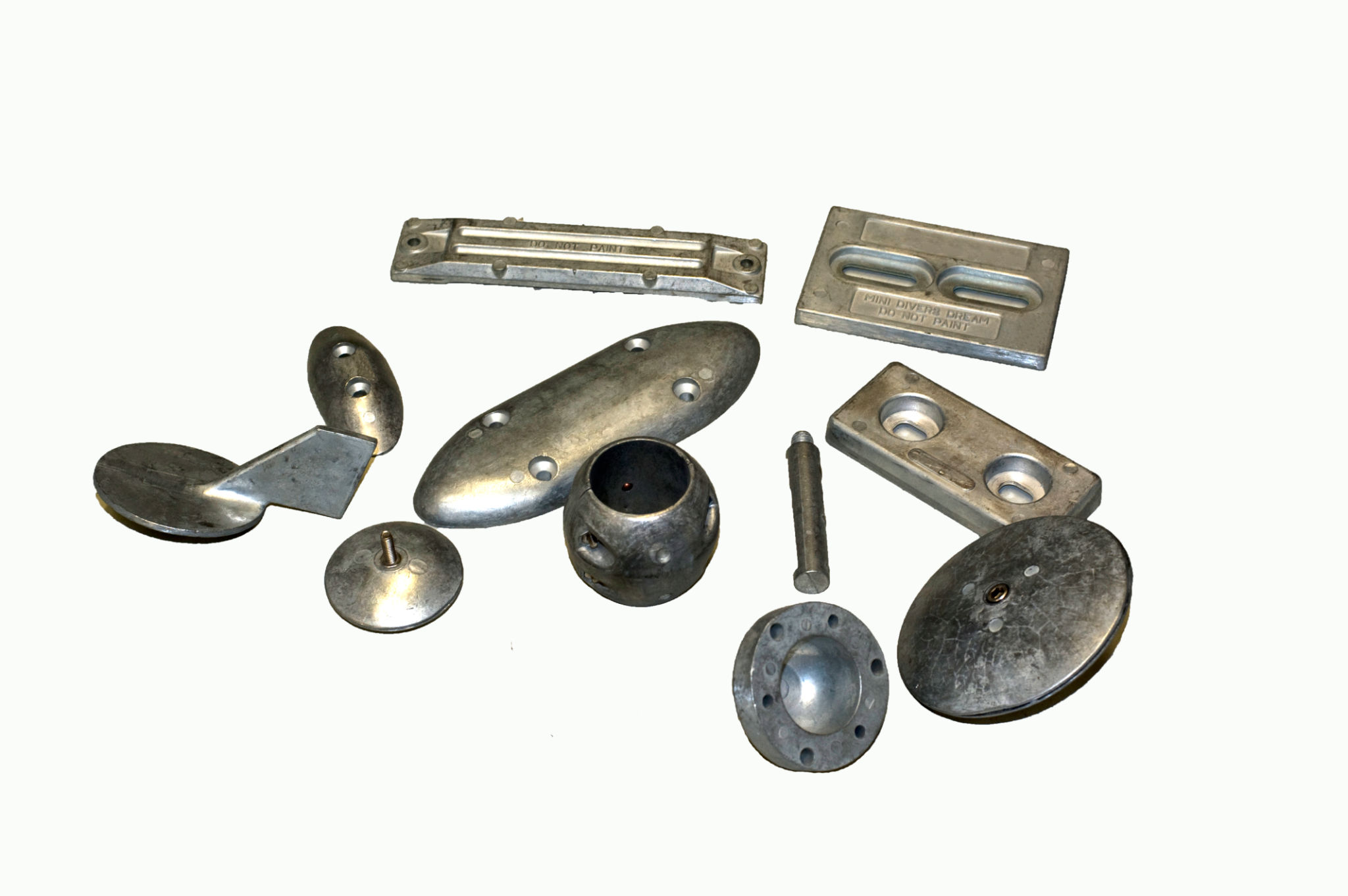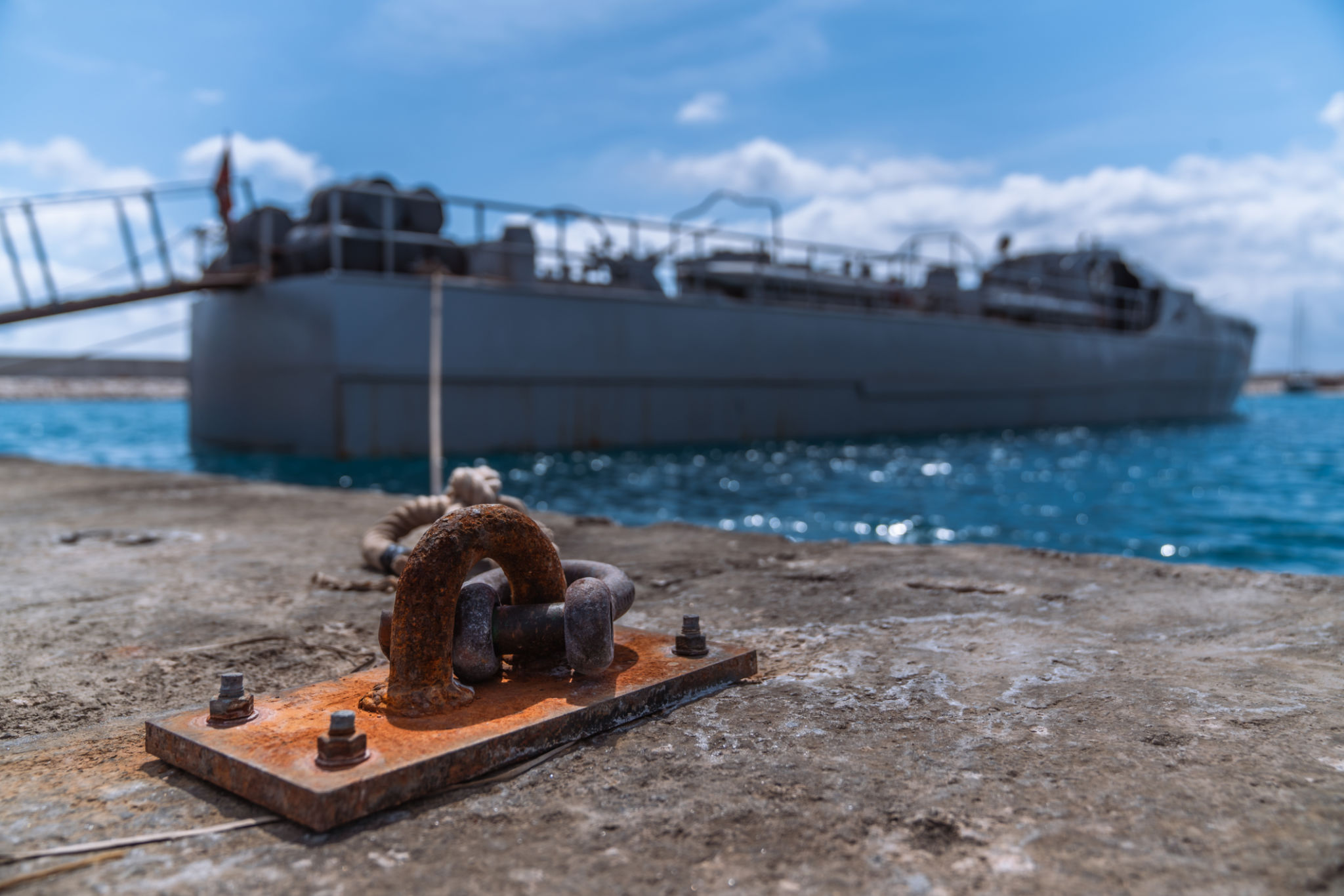Understanding Zinc Anodes: Essential Maintenance for Your Vessel
Introduction to Zinc Anodes
When it comes to maintaining the integrity of your vessel, understanding the role of zinc anodes is crucial. These components, often referred to as sacrificial anodes, play a vital role in protecting your boat from corrosion. This protection is especially important in saltwater environments where the risk of corrosion is significantly higher.
Zinc anodes are designed to corrode in place of the metallic parts of your vessel, thereby safeguarding essential components such as the hull, propellers, and rudders. This process extends the lifespan of your vessel and helps maintain its performance and appearance.

How Zinc Anodes Work
Zinc anodes function based on a principle known as cathodic protection. When different metals are immersed in an electrolyte, like seawater, a galvanic cell is formed. This cell causes one metal to become the anode and corrode, while the other becomes the cathode and is protected from corrosion.
In this setup, zinc acts as the anode due to its higher electrochemical activity compared to other metals on your vessel. As the zinc anode corrodes, it effectively protects the less reactive metals by sacrificing itself—a process that underscores its designation as a "sacrificial anode."
Choosing the Right Zinc Anodes
Selecting the appropriate zinc anodes for your vessel depends on several factors including the size of your boat, the type of water you navigate, and the specific components you need to protect. It's essential to choose anodes that are compatible with your vessel’s materials and the environmental conditions.

Anodes come in various shapes and sizes, such as discs, bars, or plates, and should be strategically placed on components that are most susceptible to corrosion. Regular inspection of these anodes is critical to ensure they remain effective.
Maintenance and Replacement
Regular maintenance of zinc anodes is key to ensuring they provide optimal protection. Over time, these anodes will degrade and need replacing. It’s advisable to check them at least once a season and replace them when they are 50% corroded.
Replacing zinc anodes is a straightforward process but requires attention to detail. Ensure that new anodes are securely attached and have good electrical contact with the metal surfaces they protect. This ensures that they will function correctly and provide reliable protection.

Signs of Anode Wear and Corrosion
Recognizing the signs of wear on zinc anodes can prevent unnecessary damage to your vessel. Indicators include significant reduction in size, uneven wear patterns, or a chalky white residue on their surface. These signs suggest it’s time for replacement.
Neglecting this important aspect of maintenance can lead to severe corrosion issues which might be costly to repair. By staying proactive with anode checks and replacements, you maintain your vessel’s structural integrity and performance.
Benefits of Proper Anode Maintenance
Regularly maintaining your zinc anodes not only extends the life of your vessel but also enhances its resale value. A well-maintained boat with minimal corrosion will attract potential buyers more easily than one suffering from neglect.

Additionally, by preventing corrosion, you reduce the risk of mechanical failures that can lead to dangerous situations on the water. Thus, investing time in understanding and maintaining zinc anodes is both a safety measure and a financial safeguard.
Conclusion
Understanding zinc anodes and their role in protecting your vessel is essential for any boat owner. By choosing the right anodes, conducting regular inspections, and replacing them when necessary, you ensure that your vessel remains in top condition for years to come.
Embrace this simple yet effective method of corrosion prevention to enjoy peace of mind every time you set sail. With proper care and attention, zinc anodes will serve as your vessel’s silent guardians against the relentless forces of nature.